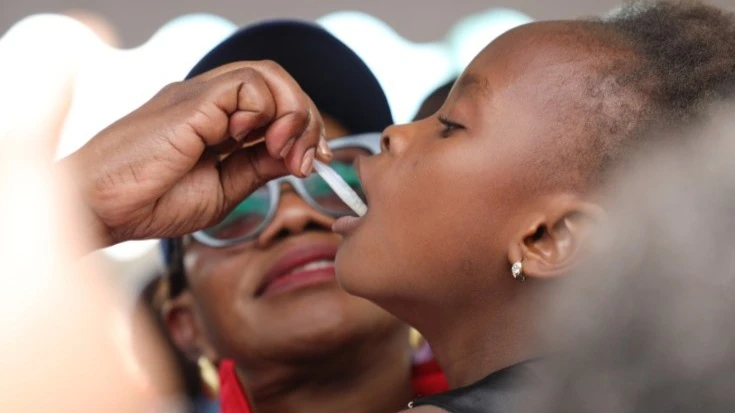Hopes lifted as WHO takes up cheaper cholera vaccine

THE World Health Organization (WHO) has approved a version of a widely used cholera vaccine that could help address a surge in cases that has depleted the global vaccine stockpile and left poorer countries scrambling to contain epidemics.
The UN agency said in a statement yesterday that warming temperatures that allow the cholera bacteria to live longer has worsened outbreaks and led to the highest death rates in a decade.
Chronicler noted that in January, WHO said the global vaccine stockpile was entirely depleted until the beginning of March, while at the start of this week there were 2.3m doses available.
Leila Pakkala, the UNICEF supply division director, said that the agency will be able to boost supplies by more than 25 percent following this decision.
Dr Derrick Sim, top executive for the Global Vaccine Alliance (GAVI) said the vaccine’s authorization is a lifeline for vulnerable communities around the world. Approval by the agency enables donor agencies like GAVI and UNICEF up now to buy it for poorer countries, boosting supplies, with GAVI estimating that 50m doses for the global stockpile will be available this year, from 38m last year.
WHO authorized the EuBiologics vaccine, also manufacturing the more familiar vaccine, last week, explaining that Euvichol-S is a simplified version using fewer ingredients.
It is cheaper and can be made more quickly than the usual version and it is hoped that the easier-to-make vaccine will help address a surge in cases of the bacterial disease, usually spread through contaminated food or water.
The depletion of the global vaccine stockpile has left poorer countries, including several in Africa, scrambling to contain epidemics, meanwhile as left untreated, cholera can be fatal within hours, even in previously healthy people.
Since January, 14 countries affected by cholera outbreaks have requested 79m doses, with the highest numbers of cases reported in the Middle East and Africa.
Cholera is an acute diarrhea disease mostly seen in areas that have poor sanitation and lack access to clean water. Most people infected with cholera don’t experience symptoms, but those with severe cases need quick treatment with intravenous fluids and antibiotics. If left untreated, cholera kills about a quarter to half of the people infected, experts affirm.
Since last January, WHO has reported more than 824,000 cholera infections, including 5,900 deaths worldwide, with the highest numbers of cases reported in the Middle East and Africa, the statement indicated.
Warming temperatures that allow the cholera bacteria to live longer have worsened outbreaks and led to higher death rates than was usually the case, it added.
Top Headlines
© 2024 IPPMEDIA.COM. ALL RIGHTS RESERVED






















